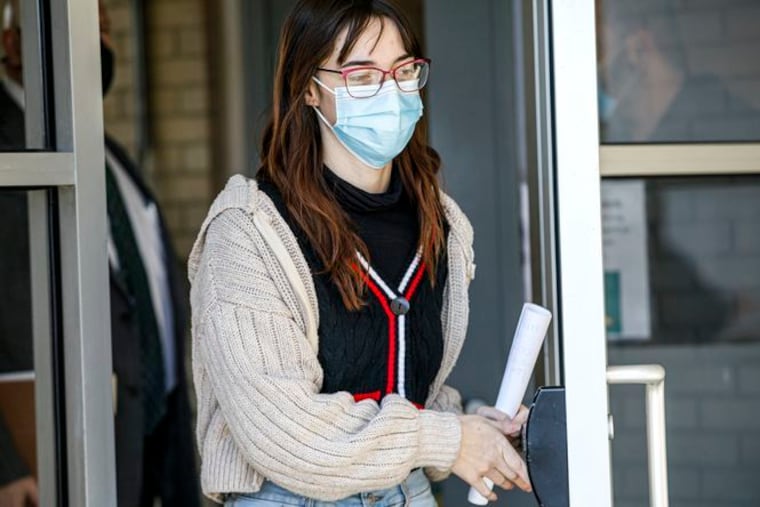The FBI didn’t recover Nancy Pelosi’s laptop from the Harrisburg woman charged with stealing it, her lawyer says
The fate of the computer has remained an unresolved mystery since Riley Williams, 22, surrendered to authorities last week after being accused of stealing it in an attempt to sell it to Russia.

FBI agents did not recover House Speaker Nancy Pelosi’s laptop from the Harrisburg woman charged with playing a role in its theft during the Capitol riot, the woman’s lawyer said Tuesday.
The fate of the computer has remained an unresolved mystery since Riley Williams, 22, surrendered to authorities last week, two days after they first accused her of stealing it in an attempt to sell it to the Russian security services. That plan failed, agents said at the time.
But seeking to deflate the case against his client, her public defender, A.J. Kramer, said Tuesday that investigators have since searched her car and the apartment she shares with her mother and found no trace of the missing technology.
“They’ve searched everywhere, and she does not have the computer,” he told U.S. Magistrate Judge Zia M. Faruqui during a hearing in federal court in Washington.
It remains unclear whether Pelosi’s laptop was ever in Williams’ possession at all. Prosecutors initially accused Williams of taking the device — something they say she boasted about on the social media platform Discord. But during Tuesday’s proceedings, they clarified that at this point they have only lodged charges against her for aiding and abetting the theft.
Capitol Police and the House speaker’s staff confirmed shortly after the Jan. 6 insurrection that the computer had been stolen but have remained silent since on whether it has been recovered.
Assistant U.S. Attorney Mona Sedky told the judge she was reluctant to say more about what she described as an “ongoing and fluid investigation.”
In court filings last week, investigators highlighted videos and messages they say Williams posted to her Discord account during the riot, including one it appears she filmed on her phone of a crowd gathered around the computer inside a conference room in Pelosi’s suite. A voice that agents have identified as Williams’ warns the others not to touch the laptop without gloves.
Later, the court filings say, Williams posted online: “I took Nancy Polesis [sic] hard drives. I don’t care.”
Williams’ lawyer did not specifically address those posts in court Tuesday. But he appeared to obliquely question their authenticity.
His client has claimed that the more outsized allegations about her conduct during the riot — specifically those involving her intent to sell the laptop to Russia — were fabricated by an abusive ex-boyfriend, the same man whose tip to the FBI first focused agents’ attention on her.
Neither she nor federal authorities has publicly identified the man, though Williams’ previous counsel has said she started the process of obtaining a restraining order against him.
In court Tuesday, Kramer maintained that the ex had accessed Williams’ social accounts and had posted things in her name.
He did not say whether he was specifically referring to the Capitol-related posts and videos on which federal authorities are basing their case. But, he maintained, she wiped her social media accounts to erase those fake messages.
Sedky pushed back on that assertion. She insisted that the FBI had uncovered evidence of Williams instructing online contacts to delete data four days after the Capitol attack and, notably, after she had already been publicly outed as a riot participant.
That timeline prompted Faruqui to further restrict Williams’ access to the internet while she remains out on bond pending her trial.
The judge had expressed some surprise earlier in Tuesday’s hearing that prosecutors had agreed to Williams’ release at all, given her purported plans involving Russia and the serious national security implications of her case.
By the time the proceedings ended and after hearing Kramer’s doubts about the veracity of Williams’ ex’s claims, Faruqui’s incredulity had seemed to fade.
Originally, “this read like an episode of The Americans,” he said, referring to the popular TV show about Soviet-era spies, adding that now he found the case “hard to take without further facts.”